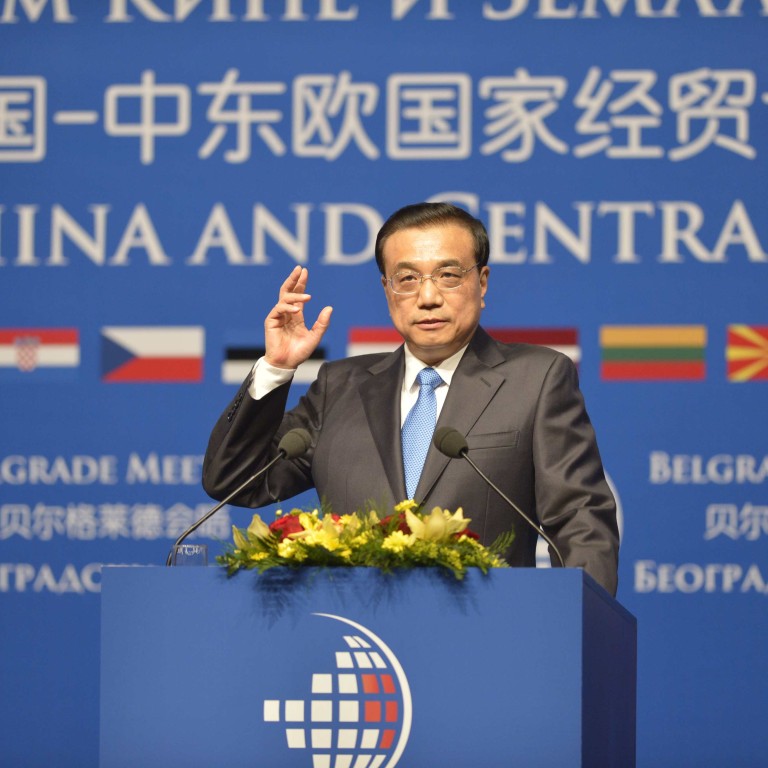
China 'to knock on EU's door' with US$3b central and eastern Europe investment fund
Li Keqiang pledges to increase trade links during trip to region. He will also ratify deal for Chinese-built rail link from Serbia to Hungary
China said yesterday that it would create a new US$3 billion investment fund focusing on central and eastern Europe, a move that will strengthen its foothold in the region as a door to the wider European Union.
During a three-day visit to the Serbian capital, Belgrade, Premier Li Keqiang is also expected to ratify a deal with Hungary and Serbia for Chinese construction of a high-speed rail link between Belgrade and Budapest.
The mainland regards central and eastern Europe as a potentially lucrative market and bridgehead to the wider EU, drawn by relatively low wages, educated workforces and scope for development on the fringes of the bloc.
Chinese investment in the region usually comes in the form of loans financed by China's state-owned banks for projects carried out by Chinese companies, particularly in the infrastructure and energy sectors.
Li, however, told a summit in Belgrade, attended by the leaders of 16 central and eastern European countries, that China was open to "new models of financing and investment".
"We expect new ways of cooperation through private-public partnerships, various leasing arrangements, and that will make our cooperation more efficient, more productive," he said.
Li said closer ties would bring massive Chinese investment and open up large markets in China for central and eastern European goods.
He sought to alleviate fears voiced from some within the EU that China's regional deals could contravene the 28-nation bloc's strict financial and trade rules.
The timing of the China summit, the third in as many years, is significant as it comes while Russia, the traditional regional powerbroker, is struggling with deep economic problems caused partly by crippling Western sanctions over Moscow's role in Ukraine.
"The difference between the Russian and Chinese approach in the region is that Russians are more political, while Chinese are more commercial," Miroslav Prokopijevic, a Serbian economy analyst, said.
Unlike Moscow, which is applying a combination of economic and political pressure on the region's governments, Beijing sees its increased economic influence in the area as a chance to boost ties with the EU.
Zhang Jianrong, a Russian affairs specialist at the Shanghai Academy of Social Sciences, said the US$3 billion fund was part of Beijing's attempts to boost trade in the region.
But he said US$3 billion was not a significant amount compared with other Chinese investment funds in other areas of the world.
"It's a goodwill gesture that China wants to cooperate with the region, but I don't expect many large projects will come out of it," Zhang said.


